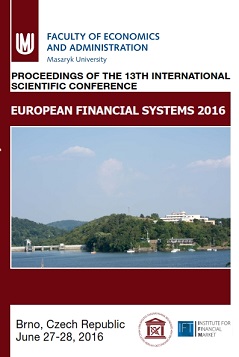
Current Issues of Accounting for Intangibles in Various Reporting Systems
Current Issues of Accounting for Intangibles in Various Reporting Systems
Keywords: accounting; intangibles; measurement; reporting standards;
In today’s economy value is often created by intangible assets that represent intellectual capital. The accounting standard setters try to meet the challenge of recognition and reporting the results of knowledge-based entities. The problems relating to the accounting for intangibles are international in scope. This paper briefly reviews existing IFRS, US, UK and Czech accounting standards relating to Intangibles. Inconsistencies are highlighted, and evidence is provided that suggests that recognition of Intangible Assets is in accordance with existing accounting principles. This article is based on analysis and comparisons of relevant literature resources, mainly articles and conference papers, but also legislative acts and monographs.
More...